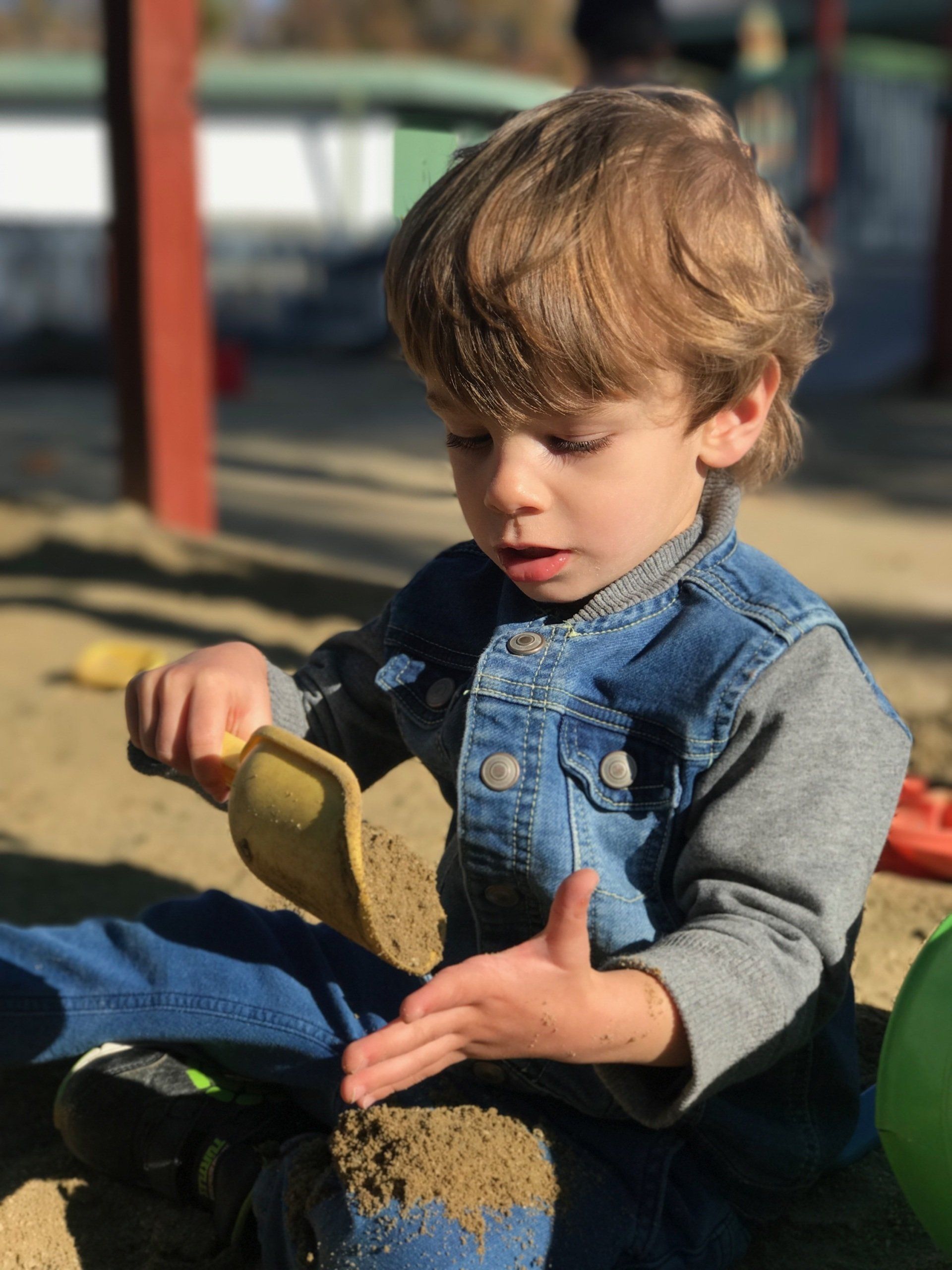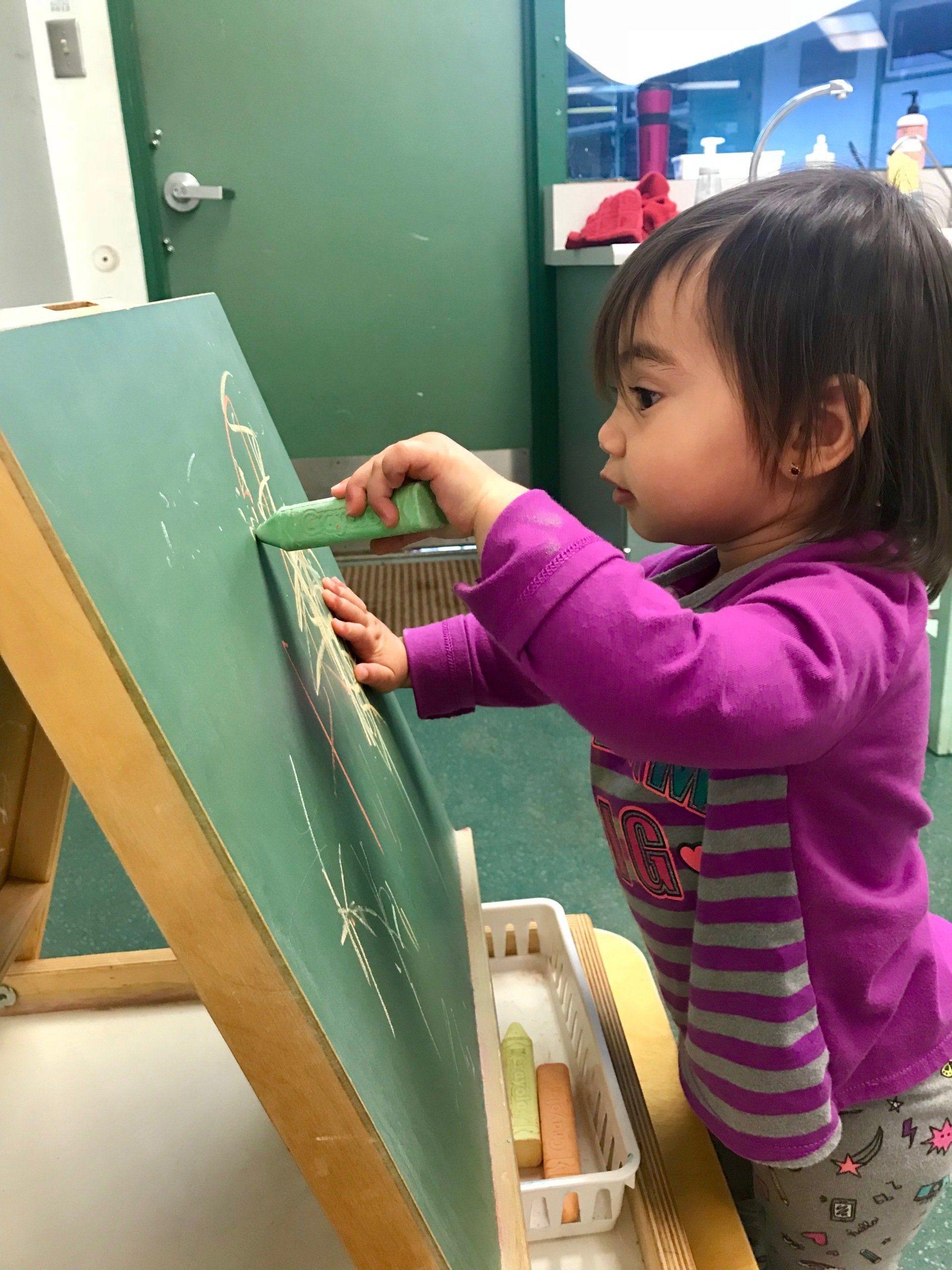Frequently Asked Questions
Some questions we hear most frequently about Montessori
The number of Montessori schools is growing and key Montessori ideas are being integrated into many public schools and universities. Along with evolving interest and acceptance, there are also questions and misconceptions.
What is the difference between Montessori and traditional education?
For children six and under, Montessori emphasizes learning through all five senses, not just through listening, watching, or reading. Children in Montessori classes learn at their own pace and according to their own choice of activities out of hundreds of possibilities. They are not required to sit and listen to a teacher talk to them as a group, but are engaged in individual or small group activities of their own, with materials that have been personally introduced to them by their teacher -- who has been carefully observing to know exactly what each child is ready to do.
Learning is an exciting process of discovery, leading to concentration, motivation, self-discipline -- and ultimately a love of the process of learning itself.
Beyond age six, children learn to do independent research, arrange field trips to gather information, interview specialists, create group presentations, drama performances, art exhibits, musical productions, science projects, and more. There is no limit to what they can create and acheive within this kind of intelligently guided freedom. There are no textbooks or adult-directed group lessons or a daily schedule. There is deep respect for the choices of the children, and we find they easily keep up with or surpass what they would be doing in a more traditional setting. There is no wasted time and children genuinely enjoy their work and study. The children ask each other for lessons and much of the learning comes from sharing and inspiring each other instead of competing academically.
Why does Montessori have multi-age classrooms?
Multi-age classrooms allow us to adapt the curriculum to each child. Children can work at their own pace while remaining in the community with their peers. In addition, the multi-age format allows the older children to be leaders of the classroom community, even those who are more reserved.
Is Montessori good for children with learning disabilities? What about gifted children?
Montessori is designed to help all children reach their fullest potential at their own unique pace. A classroom whose children have varying abilities is a community in which everyone learns from one another and everyone contributes. Moreover, multi-age grouping allows children to find their own pace without feeling “ahead” or “behind” in relation to peers.
Are Montessori schools religious?
No. Montessori educates children without reference to a religious denomination. As a result, our classrooms are extremely diverse, with representation from all peoples, cultures, and religions.
Is Montessori a franchise? Who can open a Montessori school?
Montessori is not a franchise. The term Montessori is not trademarked and anyone, regardless of training, experience or affiliation can open a “Montessori” school. It is essential that parents researching Montessori act as good consumers to ensure the authenticity of their chosen program.
Isn’t Montessori just a preschool?
Montessori schools may be best known for their programs with young children, but the underlying educational method describes programs for students up through high school.
If children are free to choose their own work, how do you ensure that they receive a well-rounded education?
Montessori children are free to choose within limits and have only as much freedom as they can handle with appropriate responsibility. The classroom teacher and assistant ensure that children do not interfere with each other and that children are progressing at their own appropriate pace in all subjects.
Montessori classrooms don’t look like regular classrooms. Where are the rows of desks? Where does the teacher stand?
The different arrangement of a Montessori classroom mirrors the Montessori method's differences from traditional education. Rather than putting the teacher at the focal point of the class, with children dependent on the adult for information and activity, the classroom itself fosters a child-centered approach by design.
Children work at tables or on floor mats where they can spread out their materials, and the teacher circulates about the room, giving lessons or resolving issues as they arise.
Are Montessori schools as academically rigorous as traditional schools?
Yes. Montessori classrooms encourage deep learning of the concepts behind academic skills rather than rote practice of abstract techniques. The success of our students is clear in the experiences of our alumni, who are successful alongside their traditionally educated peers in a wide range of educational and career pursuits.
Since Montessori classrooms emphasize non-competitiveness, how are students adequately prepared for real-life competition later on?
Montessori classrooms emphasize competition with oneself: self-monitoring, self-correction, and a variety of other executive skills aimed at continuous improvement. Students typically become comfortable with their strengths and learn how to address their weaknesses. In older classes, students commonly participate in competitive activities with clear “winners” (auditions for a solo at the winter performance or the lead of the book club) in which students give their best performances while simultaneously encouraging peers to do the same. It is a healthy competition in which all contenders are content that they did their best in an environment with clear and consistent rules.




